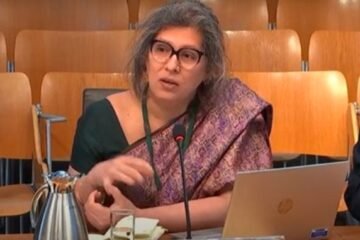Millions of Scots are poised to miss out on crucial GP appointments due to the Scottish National Party (SNP) government’s failure to recruit enough doctors. Despite pledges to increase the number of GPs by 800 within the next three years, experts claim this target is unlikely to be met. This shortfall could result in over three million missed appointments annually, exacerbating the already strained healthcare system in Scotland.
Recruitment Challenges and Government Promises
The SNP government has committed to recruiting 800 additional GPs by 2027. However, Dr. Iain Morrison, chairman of BMA Scotland’s general practice committee, has expressed doubts about achieving this goal. He highlights that the number of GPs has remained stagnant over the past two decades, while patient demand has consistently grown. This mismatch between supply and demand is causing significant strain on the healthcare system.
Dr. Morrison also points out that the percentage of NHS spending on general practice has decreased, further complicating efforts to meet patient needs. The government’s failure to invest adequately in GP practices is seen as a major obstacle to improving healthcare services. Without sufficient funding and support, the recruitment and retention of GPs remain challenging.

The Scottish Government, however, maintains that they are committed to their recruitment targets. They emphasize that Scotland has a higher number of GPs per head compared to the rest of the UK and that over 1200 trainee GPs are currently in the training system. Despite these assurances, the gap between the government’s promises and the reality on the ground remains a concern for many healthcare professionals.
Impact on Patient Care
The shortage of GPs is having a direct impact on patient care. With fewer doctors available, patients are facing longer wait times for appointments and reduced access to essential healthcare services. This is particularly concerning for older adults and those with chronic conditions who require regular medical attention.
Adam Stachura of Age Scotland underscores the importance of face-to-face consultations, especially for older individuals who may not see many people regularly. In-person appointments provide an opportunity to assess various aspects of a patient’s wellbeing, including mobility, nutrition, and mental health. The lack of sufficient GPs threatens to undermine these critical interactions, potentially leading to undiagnosed and untreated health issues.
Moreover, the pressure on existing GPs is leading to burnout and reduced working hours. A recent report by the General Medical Council revealed that many doctors are cutting their hours to safeguard their own wellbeing. This trend further exacerbates the problem, creating a vicious cycle of reduced availability and increased demand.
Calls for Government Action
Healthcare professionals and advocacy groups are calling on the government to take immediate action to address the GP shortage. Dr. Morrison advocates for direct investment in GP practices, which he describes as the most economically productive part of the NHS. He argues that every pound spent on general practice yields significant benefits for the wider economy.
There is also a push for better support and incentives for GPs to remain in the profession. Addressing the root causes of burnout and providing a more supportive working environment are seen as essential steps to retain existing doctors and attract new ones. Without these measures, the healthcare system risks further deterioration, leaving millions of Scots without the care they need.
The Scottish Government has reiterated its commitment to increasing GP numbers and improving healthcare services. However, the gap between policy and practice remains a significant challenge. As the healthcare system continues to grapple with these issues, the need for effective and timely solutions becomes ever more urgent


















